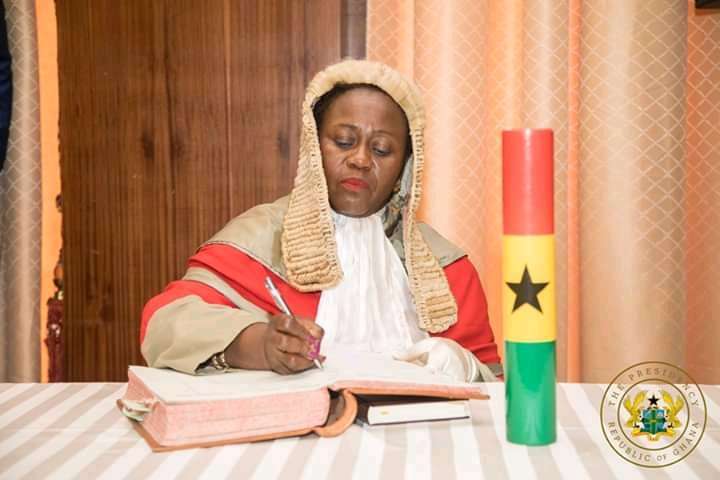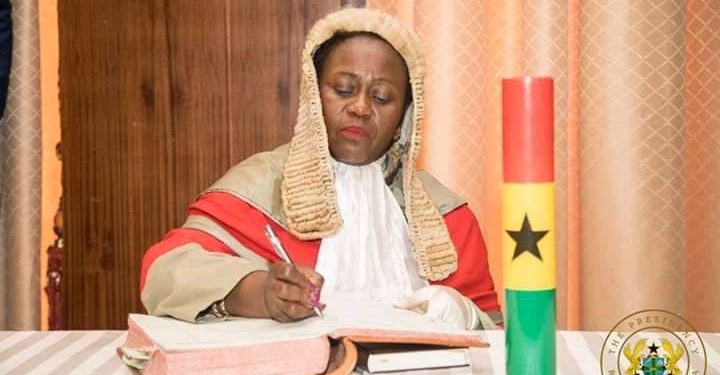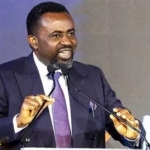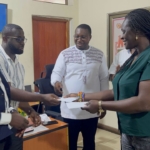
The unprecedented lawsuit mounted by suspended Chief Justice Gertrude Torkornoo against the Republic of Ghana at the ECOWAS Court of Justice is more than a personal quest for vindication—it’s a high-stakes constitutional drama unfolding on both domestic and regional stages.
Her demand for a staggering $10 million in compensation for alleged moral and reputational damages follows her suspension by President John Dramani Mahama on April 22, 2025.
This has thrust Ghana into an intense national debate about the very foundations of its democracy and the independence of its judiciary. This marks the first time in Ghana’s 68-year history that a sitting Chief Justice has faced the commencement of removal proceedings and responded with a regional legal action.
A Plea for Dignity
At the heart of Chief Justice Torkornoo’s ECOWAS suit is a powerful human element. She alleges her suspension violates her fundamental human rights to dignity, fair hearing, and fair conditions of work, as enshrined in Articles 5, 7, and 15 of the African Charter on Human and Peoples’ Rights. Beyond the legal system, her filing paints a picture of a leader subjected to “immeasurable public ridicule,” and professional harm.
On June 25, 2025, in a televised address to the nation, Chief Justice Torkornoo highlighted the “unprecedented nature” of her situation, stating that the “perversion of law, rules, and due process… are driving the proceedings and this renders the proceedings unconstitutional.”Her personal narrative resonates with some Ghanaians, who are questioning whether due process is indeed being served or if there are politics at play.
This skepticism is not new. Recent Afrobarometer surveys indicate an alarming decline in public trust, with 62% of Ghanaians saying they have little or no trust in the courts, a sharp increase from 30% in 2005/06. Even more starkly, a staggering 97% of Ghanaians perceive judges and magistrates as corrupt, often citing this perception to the judiciary’s handling of politically sensitive cases.
Navigating Dual Jurisdictions
The decision to approach the ECOWAS Court while domestic proceedings are ongoing presents a fascinating legal tightrope walk. While Ghana’s Supreme Court dismissed Chief Justice Torkornoo’s injunction application on admissibility grounds—not the merits—it leaves substantive arguments regarding the legality of the process still pending at the national level..
The ECOWAS Court, as a human rights court of first instance, has a well-established jurisprudence of hearing cases even when parallel domestic proceedings are active, provided the case is not before another international court.
As private legal practitioner Martin Kpebu stated, “Under ECOWAS jurisprudence, having a case before a domestic court is not a bar to filing before the ECOWAS Court.”This principle stands in contrast to the stricter exhaustion requirements of some other international tribunals. It is outlined in cases like Registered Trustees of HEDA Resource Centre v. Republic of Nigeria (2021), showcases the ECOWAS Court’s commitment to ensuring access to regional human rights remedies.
However, some Ghanaian legal experts, including former Ghana School of Law Director Kwaku Ansah Asare, view the ECOWAS recourse as a misstep. He argues that Ghana’s 1992 Constitution, specifically Article 146, provides a clear framework for judicial removal, and that “Our procedures are firmly embedded in the High Court rules and the Evidence Act of 1975. ECOWAS does not have a sub-regional procedure that we are violating.”
He went as far as to suggest the Chief Justice is “shooting herself in the foot” and “worsening her own predicament through missteps.”This divergence of opinion underscores the complex interplay between national sovereignty and emerging regional legal frameworks in West Africa.
Political Undertones
President Mahama’s administration, represented by justices like Deputy Attorney General Justice Srem-Sai who confirmed the ECOWAS filing on July 4, 2025, maintains its actions are in strict adherence to Article 146 of the 1992 Constitution.The article dictates a process involving a prima facie case by the Council of State before a committee of inquiry is established.
While the ruling National Democratic Congress (NDC) emphasizes its commitment to constitutional fidelity, the opposition New Patriotic Party (NPP) has largely maintained a watchful silence, highlighting the political risk of attacking the judiciary.
However, the public narrative is far less reserved. Many Ghanaians view the process through a political lens, fueled by past rhetoric.
“The Chief Justice’s removal is political. We heard President Mahama suggest the court is packed with NPP people and that his appointees should prepare to take over. It’s political,” said Ato Yawson, a Ghanaian law student, reflecting a common sentiment.This perception of political interference, if solidified by the ECOWAS ruling, could severely undermine the rule of law and democratic accountability, essential for both domestic stability and international standing.
The Commonwealth Lawyers Association (CLA) has also weighed in, highlighting concerns that “the power to suspend a judge may be abused to penalise or intimidate independent-minded judges and to prevent them from deciding cases.”
Apart from the legal and political spheres, Ghana’s judicial crisis carries tangible economic implications. Legal experts warn that prolonged legal battles and regulatory uncertainty could deter foreign direct investment (FDI), an essential component of Ghana’s industrialization plans.
Investor confidence hinges on predictable legal environments and a strong rule of law. A negative outcome at ECOWAS, or continued perception of judicial vulnerability, could pressure asset valuations and impact Ghana’s attractiveness as a market, despite its IMF-backed reforms.
The final ruling of the ECOWAS Court transcends Chief Justice Torkornoo’s fate. It will reshape the trajectory of judicial independence in Ghana, and set a powerful precedent of accountability for high-ranking officials in the West African nation. This decision will permanently define the future of justice and democratic governance across the African continent.
DISCLAIMER: The Views, Comments, Opinions, Contributions and Statements made by Readers and Contributors on this platform do not necessarily represent the views or policy of Multimedia Group Limited.
DISCLAIMER: The Views, Comments, Opinions, Contributions and Statements made by Readers and Contributors on this platform do not necessarily represent the views or policy of Multimedia Group Limited.
- President Commissions 36.5 Million Dollars Hospital In The Tain District
- You Will Not Go Free For Killing An Hard Working MP – Akufo-Addo To MP’s Killer
- I Will Lead You To Victory – Ato Forson Assures NDC Supporters
Visit Our Social Media for More




